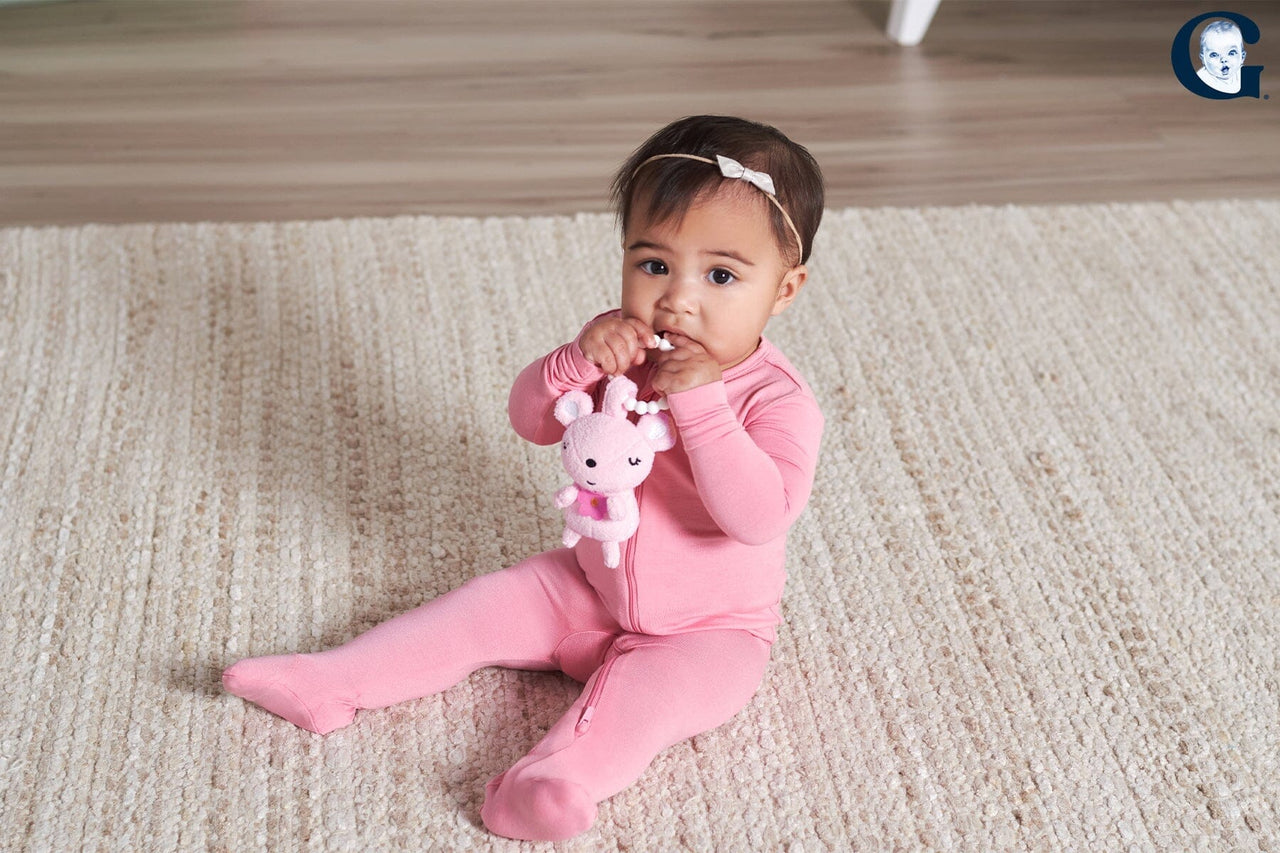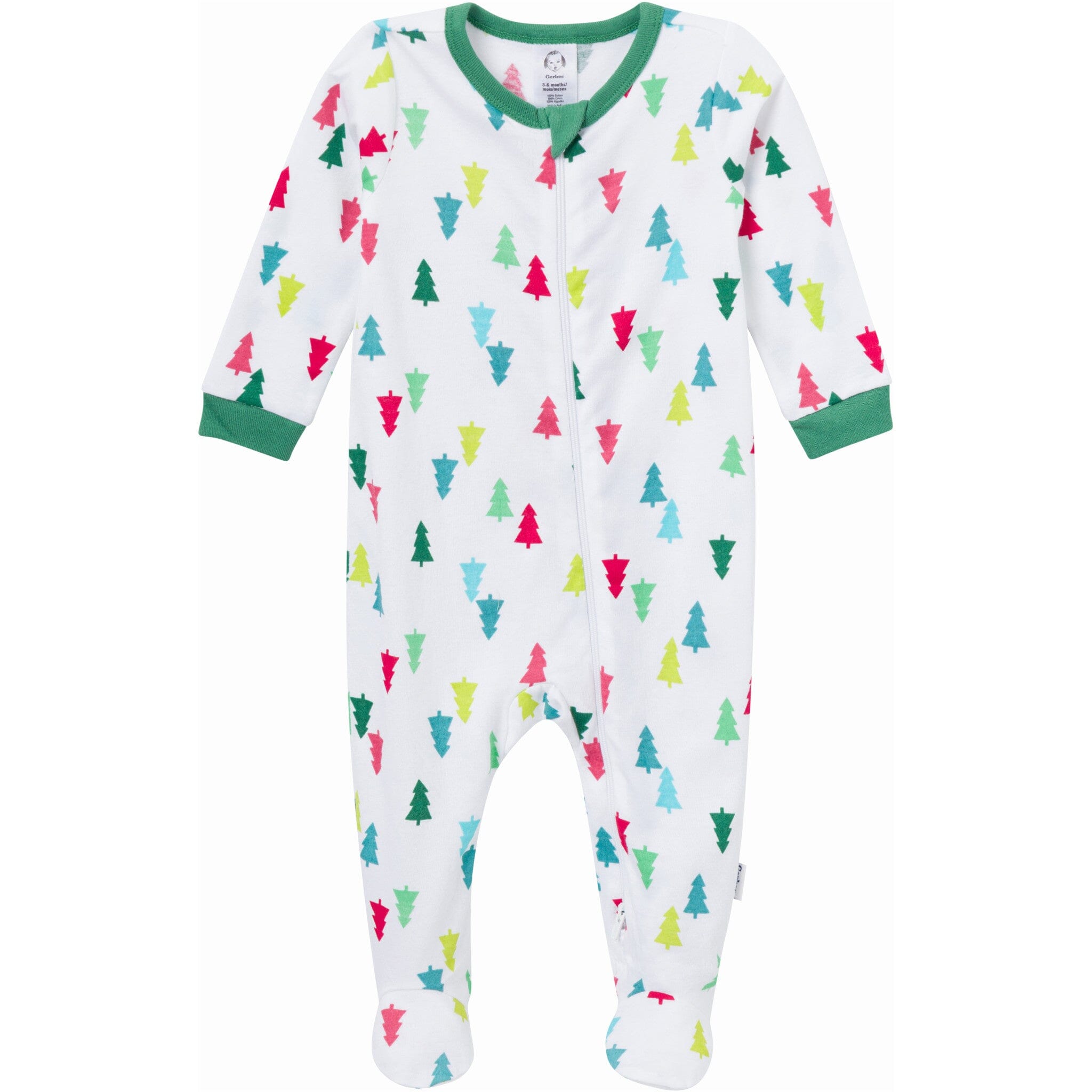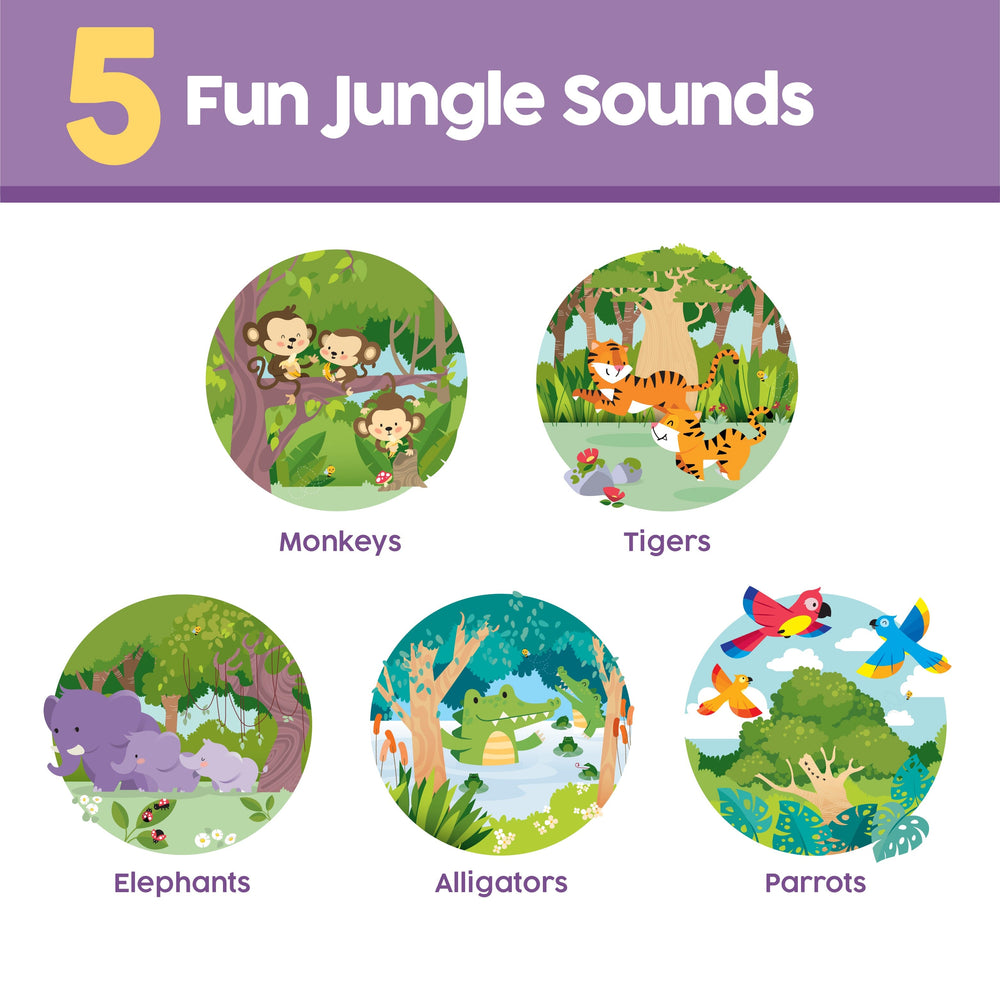Know the Symptoms: 5 Signs Your Baby Is Teething

Your baby’s first year is full of exciting milestones. One of the most adorable parts of seeing them grow is watching them sprout their first teeth. When do babies start teething, you ask? According to HealthyChildren.org, most infants will start around six months of age, but it could take up until they’re a year old to begin the teething process.
No matter when your child gets their first tooth, their growing smile is sure to melt your heart. However, as cute as it is, it probably won’t come without a few tears. According to WebMD, teething can cause significant discomfort in babies. As you keep on the lookout for cranky behavior, learn exactly how to tell if baby is teething. The following symptoms are commonly seen in teething infants, which is a great place to start.
1. Excessive Drooling
There are many reasons for drooling in infancy. However, if you notice more saliva on their bibs or toys than usual, your little one may be teething. According to the pediatricians at HealthyChildren.org, the flow of saliva in your child’s mouth increases when a new tooth sprouts above the gumline.
As baby gnaws and chews their favorite items, you’ll want to prevent what is known as drool rash. Signs of the uncomfortable condition include small patches of red bumps and skin chafing. The experts at Healthline recommend using prevention tools such as burp cloths for drooling, as well as soft, absorbent bibs for playing and feeding. If your child’s clothing becomes moist, change them as soon as possible. These practices will help to ensure your baby isn’t getting fussy from something other than teething.
2. Elevated Temperature
The American Academy of Pediatrics says that teething can cause a slight elevation in body temperature. While you may notice a rise on the thermometer, new teeth do not usually cause an actual fever. Your baby’s head or cheeks may feel a little warm, but they should not be sick.
A fever in babies is defined as a body temperature of over 100.4 degrees. If you think your little one has a fever of more than 100.4 degrees, call their pediatrician for advice. A temperature of this level is usually a sign of an illness or infection and should be evaluated by a doctor.

3. Swollen Gums
Your child’s gums may look red or inflamed. If they are swollen, they probably feel tender and uncomfortable to your baby. The Mayo Clinic says you can soothe sore gums by giving your child a chilled teething ring or washcloth. Gently rubbing the swollen areas with a moist gauze pad can also provide some temporary relief.
Some children who eat solid foods can benefit from hard snacks. Teething biscuits are available in a variety of flavors. Refrigerated vegetables can also be satisfying between meals.
4. Decreased Appetite
Feedings can be difficult during teething time. As FamilyEducation.com mentions, sucking or chewing can cause pain in your baby’s teeth and gums. In an effort to avoid the discomfort, they may stop eating or drinking as much as they normally do.
If your child doesn’t have much of an appetite while teething, don’t panic. Try to give them soft meals and snacks that are easy to chew. Moms who are bottle feeding may want to experiment with different flows of nipples. The period of discomfort should only last a few days–until baby’s teeth sprout through. Medical experts at BabyCentre UK say that it takes about a week for a tooth to fully erupt through the gumline. If your little one’s feedings seem to be off for more than a few days, it doesn’t hurt to get a checkup at your pediatrician’s office.
5. Interrupted Sleep
If you’ve ever had sore muscles or a migraine, you know how difficult it can be to try and sleep through the pain. It’s even more difficult for a small child or baby to cope with soreness and tenderness. The baby experts at Parents say that while teething, your little one may sleep less, wake up multiple times in the middle of the night or be harder to put down for a nap.
Chances are you’re also losing sleep. Take a deep breath and remember this phase will pass when your child feels better. In the meantime, keep up with your normal baby sleep routine so you infuse as much comfort and normalcy into bedtime as possible. Your baby may need more cuddles or take longer to put to sleep than usual. Give them the closeness and support they need until their tooth finally comes through. You should notice their nighttime and nap routine returns to normal when teething is over. If your child continues to have challenges with sleep, it never hurts to talk to their doctor.

Comforting Your Baby During the Teething Process
Teething isn’t easy on babies or their parents. Knowing the symptoms of teething helps you spot signs of discomfort so you can care for your child as quickly as possible. Just as you know what to expect during teething, it’s just as important to know what’s not normal. If your little one develops a cough, begins vomiting or has diarrhea, see a medical professional.
Rashes, high fevers and congestion are also symptoms in babies that are not related to the normal teething process. In most cases, a little extra attention and love is all your child should need to cope with teething. Thankfully, their beautiful smile will be worth any fussy days or sleepless nights you experience.




























